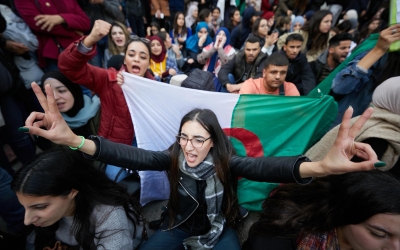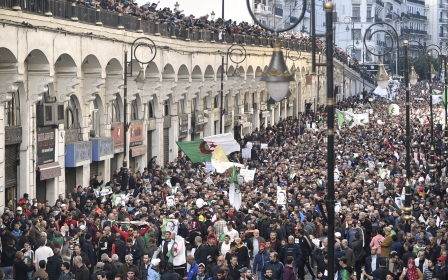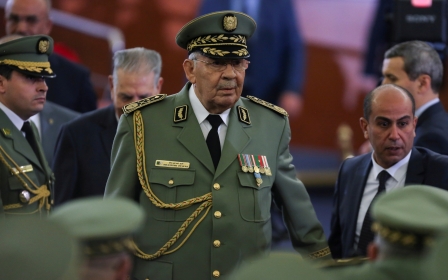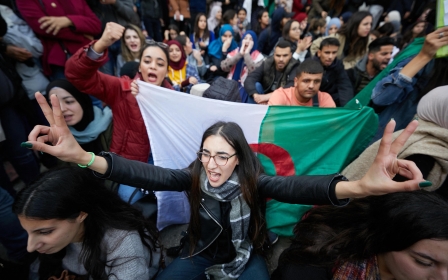Algerian president names PM, as protest movement maintains pressure
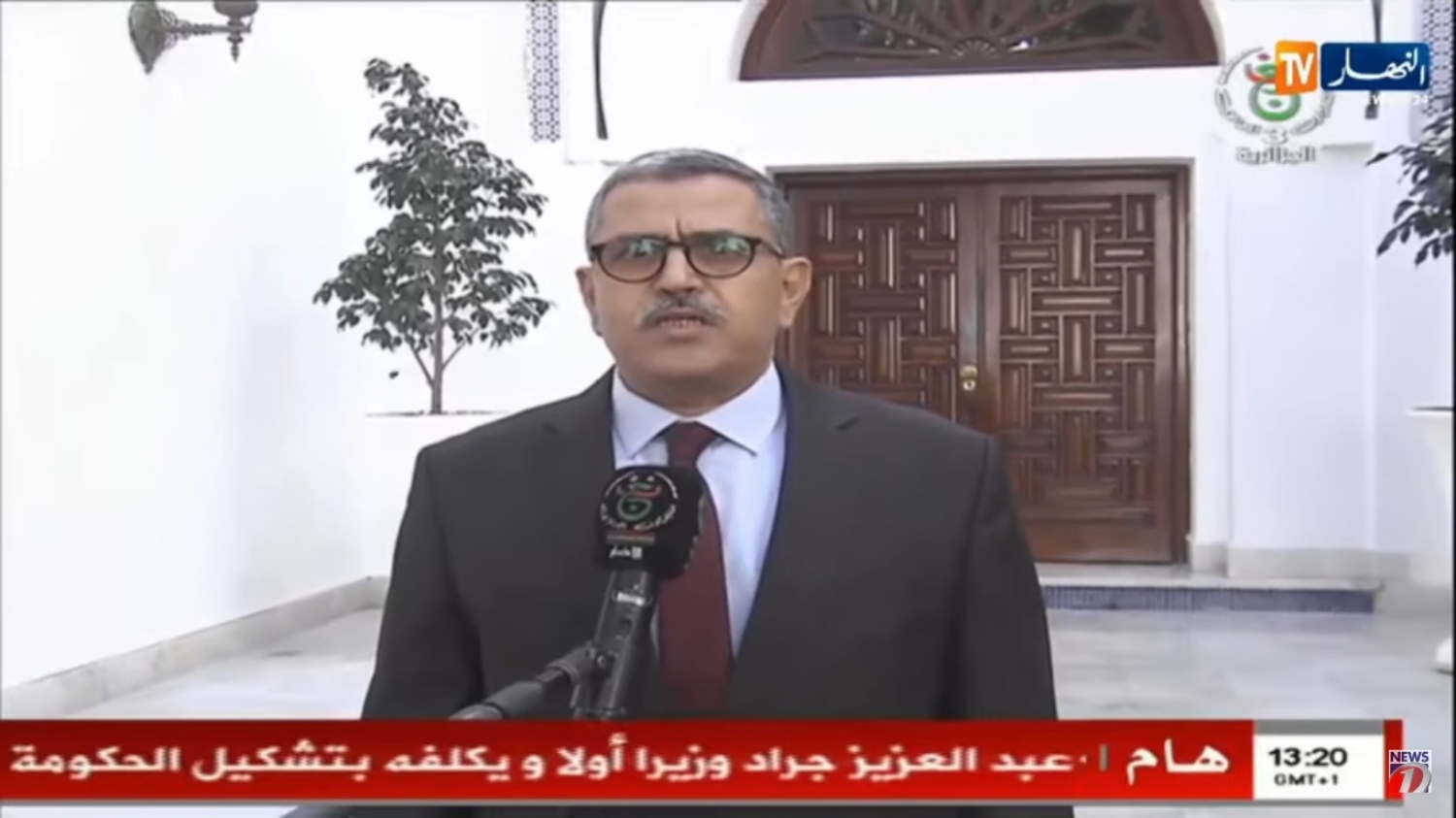
Newly elected Algerian President Abdelmadjid Tebboune designated Abdelaziz Djerad as his prime minister on Saturday, two weeks after winning a contested election.
A statement from the presidency, made public on national television, announced that Djerad, a 65-year-old academic with a doctorate in political science, was "tasked with building a new government".
Djerad will replace Sabri Boukadoum, the foreign affairs minister who had been serving as interim premier since Tebboune was sworn in as the new head of state on 19 December.
"We must work with all national skills and frameworks of the country, and with citizens, in order to get out of the current difficult phase and deal with economic and social challenges," Djerad said in a televised statement with Tebboune.
"We are faced with a great challenge to regain [the people's] trust," he added.
New MEE newsletter: Jerusalem Dispatch
Sign up to get the latest insights and analysis on Israel-Palestine, alongside Turkey Unpacked and other MEE newsletters
Djerad will be tasked with putting together a new cabinet, as well as implementing new tools of governance as part of the new republic promised by Tebboune.
Experienced politician
This is not the new prime minister's first foray into politics. After serving as the head of the National School of Administration (ENA) of Algiers between 1989 and 1992, Djerad served as secretary-general of the presidency between 1993 and 1995, and was secretary-general of the Ministry of Foreign Affairs between 2001 and 2003, AFP news agency reported.
Tebboune emerged as the winner of 12 December presidential elections marked by a low turnout rate of 40 percent.
The vote had been championed by the Algerian army as a way of restoring stability almost 10 months into a protest movement that ousted president Abdelaziz Bouteflika, 82, in April after two decades in office.
But protesters boycotted the election, which they denounced as a charade to keep the ruling elite in power, with all candidates widely rejected as "children of the regime".
While Tebboune vowed upon his induction to engage in a dialogue with the "hirak" - or protest movement - it remains to be seen whether Djerad will be the one leading such efforts.
On Friday, tens of thousands of demonstrators took to the streets in the latest weekly protest in the streets of the Algerian capital - the first since army chief Ahmed Gaid Salah died of a heart attack on Monday.
Middle East Eye delivers independent and unrivalled coverage and analysis of the Middle East, North Africa and beyond. To learn more about republishing this content and the associated fees, please fill out this form. More about MEE can be found here.


